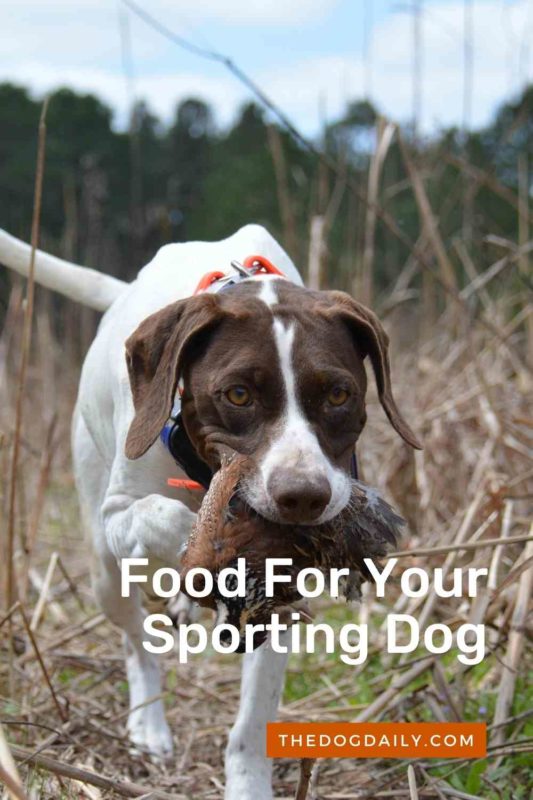What Do You Feed Your Sporting Dog?
In dog food’s ever-evolving landscape, formulas for highly active or sporting dogs are the latest trend. There’s a good reason: Just like human athletes’ nutritional needs are different from those of non-athletes, the same is true for dogs. But what exactly is a sporting dog? Dr. Katy Nelson, a Virginia-based veterinarian, says the athlete/non-athlete comparison is apt.
“Think of this in terms of people,” says Nelson. “Michael Phelps is going to have vastly different nutritional needs from the average person who goes to the gym a few times a week. A weekend warrior does not need a diet change in the dog world to compensate for one major calorie-burning session a week.
In contrast, a dog that lives on a farm runs with its owner every day, does agility training, or hunts every day is going to have much higher caloric requirement just for maintenance than an average dog.”
These particular foods are differentiated mainly by higher fat and protein quantities and a focus on high-quality protein. “Fat brings in twice the amount of kilocalories per gram than protein and carbohydrates,” says Dr. Amy Dicke, an Ohio-based veterinarian and technical services veterinarian for Iams, specializing in diet and nutrition. “Meat-based proteins, such as chicken, bring in the essential amino acids to support muscle maintenance and development. Other meat-based proteins also supply natural sources of glucosamine and chondroitin, which are important building blocks for healthy joint cartilage — essential for active dogs that may be performing activities that can stress joints.”
Sporting Dog Food Recommendations
Can I Feed My Sporting Dog Regular Dog Food?
Dicke says that regular dog food wouldn’t severely harm a sporting dog; it’s merely not optimal, and it’s harder for these dogs to eat enough to get the energy input they need. In this scenario, owners should watch out for weight loss and loss of body condition. On the other hand, you don’t want to feed a sporting formula to a non-sporting dog.
“House dogs should not be fed sporting dog food,” says Nelson. “The extra protein could cause undue pressure on the kidneys, the added fat could cause gastrointestinal upset, and the unburned calories will lead to obesity.” And while you may wean a dog on or off the food as sporting seasons come and go, she warns against feeding it to dogs only on weekends. “It would lead to gastrointestinal distress if introduced abruptly. When you’re introducing a new diet, it should be done over seven to 10 days. If they are just a weekend warrior, go with the law of averages: Some days they’ll do less, other days more. No need to over-supplement. These formulas are also not for puppies. A sporting
lifestyle is wrong for puppies, whose growing joints may be harmed by overly strenuous, repetitive activity.”
Monitor Activity Levels For Your Active Dog
As a last word of advice, both doctors warn overzealous owners not to mistake sporting dog food for a performance enhancer and guard against pushing dogs too far. “Owners need to be keenly perceptive of their pets’ tolerance, as some dogs will continue to perform past their max because they enjoy the activity,” says Dicke. “Fatigue, lameness and post-exercise muscular, paw pad, or joint pain can be indicators of overexertion.”
Article written by Author: Elijah Merrill

